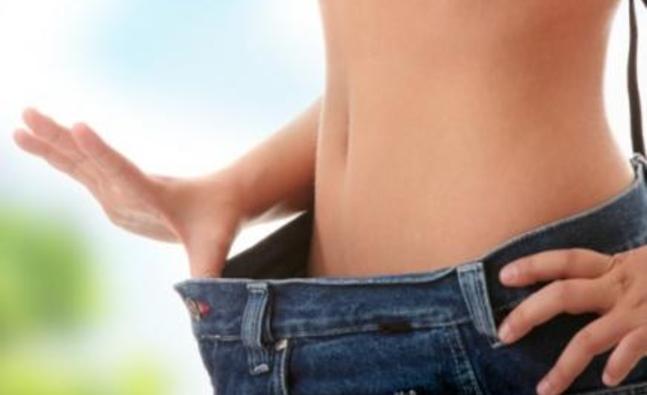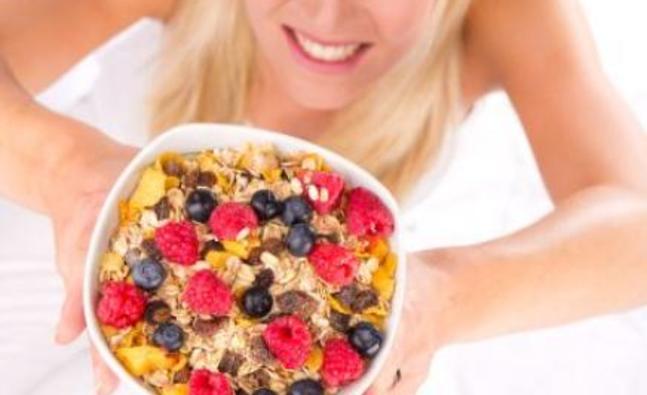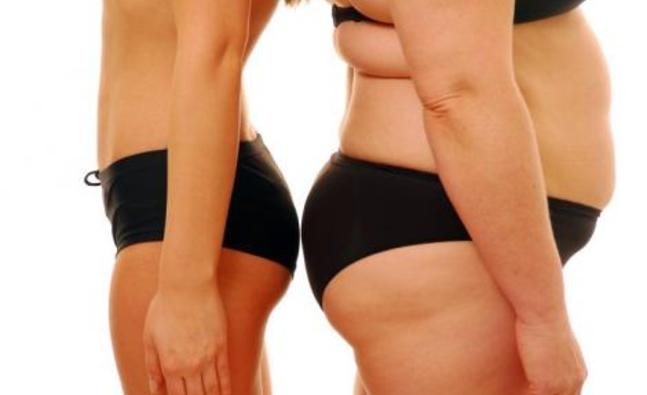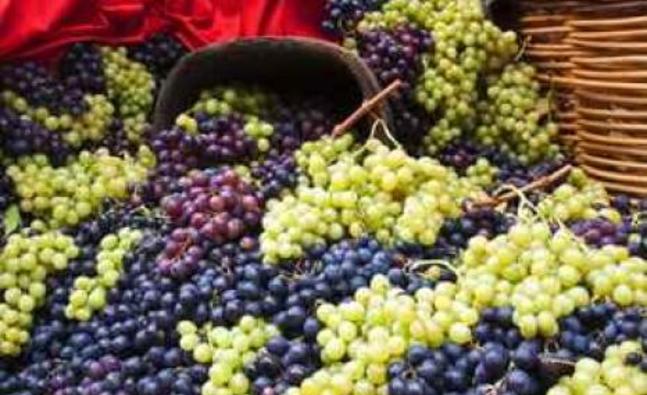Here’s Another Good Reason Not to Be Scared of Carbs
This article was written by Caroline Praderio and provided by our partners at Prevention.
Proclaiming that pasta and pancakes can help you lose weight is borderline heresy in today's health circles, where headlines assert that carbs make us fat and sick and the Ghost of Atkins Diets Past haunts every bowl of mashed potatoes like a bad case of indigestion.
But even the Ghost of Paleo Present can't stop a growing group of scientists and food manufacturers from declaring that carbs may actually help us burn fat better—and by carbs, they mean resistant starch (RS) carbohydrates.
Why These Carbs Rock
Though most people haven't heard of them, more experts are arguing that RS-rich foods, like pasta and potatoes, can help us lose weight—if we eat them right.
Think of RS as a master of disguise: It looks like a starch but acts like a fiber, passing through the small intestine to the colon without being digested (ergo its name: a starch that "resists" digestion). Normal starches have calories because we digest them, using their glucose for energy. Most starchy foods, like white bread and regular pasta, have tons of highly digestible starches—and, thereby, tons of calories. But since our bodies don't digest resistant starch, it doesn't give us energy directly, so its caloric value is slashed. RS also triggers hormones that make us feel fuller, helping us eat less throughout the day.
RELATED: 11 Eating Rules To Rev Your Metabolism All Day Long
So why haven't we all heard of it? "Even if it's news to you, this isn't brand-new science," says Wendy Bazilian, R.D., a nutrition expert and contributor to Eat Clean, Stay Lean. Researchers have known about RS for decades, but more experts are starting to understand how positively RS can affect patients and consumers. "Many people turn off their ears to carbs," says Bazilian. But RS can benefit health issues like blood sugar regulation, high insulin levels, and a healthy gut, all of which can lead to weight loss, she says.
Resistant Carb Roll Call
Today, there are hundreds of studies on RS, and researchers have learned that there are four main types of it. The first two are found naturally in foods: RS 1 is in some grains, like oats, barley, and wheat, as well as legumes, like peas, lentils, and black beans, while RS 2 is in certain veggies and fruits, including raw potatoes of every kind and green bananas. But when you cook foods that have RS 2, their starches change and lose their resistant power. For example, while a raw potato is rich in RS 2, a hot, cooked potato has none, meaning all its starches will be digested and used for energy. (Here's how to hack your gut bacteria for easier-than-ever weight loss!)
But by letting the mashed potatoes cool, they become resistant starch again. Cooling hot, cooked carbs like potatoes, pasta, or rice produces RS 3, which acts just like RS 1 and RS 2 to lower calorie count. In fact, according to one groundbreaking study, allowing rice to cool before eating it can slash its calorie content by as much as 50 percent, turning a 200-calorie cup of rice into a 100-calorie cup.
But wait, there's more. RS 4, created when food manufacturers take normal starches like wheat flour and treat them to be more resistant, lowers calories in products considerably.
How These Carbs Boost Weight Loss
Regardless of whether you're eating RS 1 or RS 4, the starch in general achieves its slimming benefits by helping the body burn more fat, better control its weight gain hormones, and curb appetite—in that order.
The domino effect starts with melting fat, which RS does by affecting which nutrients the body burns and stores, says Janine Higgins, Ph.D., an RS researcher and an associate professor of pediatrics at the University of Colorado. In short, she says, RS nudges the body to burn fat, not carbs, for fuel, while shrinking the size of fat cells. One study discovered that people who got just five percent of their daily carbs from RS—about 11 to 16 g, or the amount in half of a roasted-and-cooled potato—increased their fat burn by more than 20 percent. Other research found that eating RS 4–enriched flour reduces body fat and waist size. In mice, the starch increases fat burn by up to 45 percent, torching mostly belly fat that can surround the internal organs.
RELATED: 9 Proven Ways To Lose Stubborn Belly Fat
How, exactly, RS burns fat is still a mystery, but researchers believe it has something to do with the starch's ability to lower levels of insulin—a hormone that slows fat burn—by as much as 55 percent. You've probably heard that normal carbs, such as white bread, are packed with sugary starches that flood the bloodstream quickly, causing a spike in insulin.
But because the RS in carbs can't be digested and broken down into sugar, the insulin response is curbed.
RS's cascade of hormonal effects doesn't end with insulin. After RS resists digestion in the small intestine, it moves south to the colon, where it appears to boost hormones that send signals of satiation to the brain. One study discovered that people ate up to 300 fewer calories per day after consuming RS-packed foods.
RELATED: 10 Slimming Weight Loss Smoothies
Bacteria Bonus
It's also in the colon where RS wields its influence on our microbiomes, the trillions-strong bacterial communities linked to better immunity, mental health, and metabolism. The bugs that live in our colons feed on RS and, in turn, create more "good" bacteria. The more good bacteria, the more potential for weight loss, according to suggestive research showing both that a healthy microbiome boosts metabolism and that lean people tend to have better-nourished gut bacteria than obese people do.
The Carb Caveats
Though RS's potential seems endless, it does face the same roadblock as almost every other dietary development: "more research is needed."
And it's true. Most human studies on RS have lasted only a few weeks, not the several years researchers prefer.
But while many areas of nutritional research produce two distinctly opposed camps (paleo vs. non-paleo, meat eaters vs. vegans, dairy lovers vs. dairy haters), that kind of battle isn't happening with RS, and no expert we spoke with says that the starch is either a sham or bad for you. To date, the only documented unpleasant side effect of eating more RS is gas.
RELATED: 5 Signs You're Not Getting Enough Vitamin D
"Even though it's got 30 years' worth of research supporting its health benefits, it often takes that many years for a functional ingredient to become an 'overnight' sensation," says David Feder, R.D., author of The Skinny Carbs Diet, a cookbook of RS-rich recipes. "Olive oil is an example: From the 1960s to the 1990s, it went from being something used by Italian and Greek cooks to being in every single pantry in the United States."
And increasing RS consumption could be as easy as rethinking how we cook. While there's no standardized cooking method for increasing RS agreed upon by all scientists, the process ultimately boils down to three steps: Cook rice, pasta, potato, polenta, or oatmeal; let it cool; and devour every bite. Whole-food RS sources like beans and barley are the best choices, says Bazilian. "I'd seek out RS in real foods that you want to put on your plate already for nutritional reasons like fiber, fullness, or vitamins."
As for how much RS to eat, the answer's not really known. Most Americans get only five g per day now, mostly from the small amounts in cooked grains, pastas, and starchy vegetables like potatoes and also from breads, which contain a small amount of RS (whole wheat has more than white). Some studies seeing positive results from up to 50g a day.
RELATED: 7 Weird Reasons You're Gaining Weight
But as long as we start cooking, cooling, and eating more RS-rich foods, we'll be in good shape. That's what's so revolutionary about RS: These are real carbs, whole and delicious, already in your pantry. they're the opposite of the unpleasant pills, sweeteners, meals, shakes, and bars that we associate with weight-loss plans. So stop side-eyeing starchy foods as fattening demons. Reuniting is going to feel so good.
Welcome back, carbs. We missed you like crazy.
All gifs courtesy of giphy.com.
-
Will food combining help me lose weight?
-
Tight, Toned Tummy Tips: No gym? No worries …
-
5 Consequences of unhealthy dieting
-
Insanity Workout – How to Do And What Are Its Benefits?
Are you tired of the love handles that just won’t budge despite the st
-
How many calories are in vanilla ice cream?
-
The dangers of a feeding tube diet
- DON'T MISS
- Pig Out to Lose Weight
- 5 Tasty Desserts With 150 Calories… or Less
- How keeping a diary may assist weight loss
- Warm and waist-friendly dessert treats
- How to fight off cellulite
- 5 Tricks to burn 300 calories at the office
- 17 Day Diet – What Is It And How Does It Help You Lose Weight
- Lose weight by starting your holiday shopping early
- 5:2 Diet
- Chew on this!




